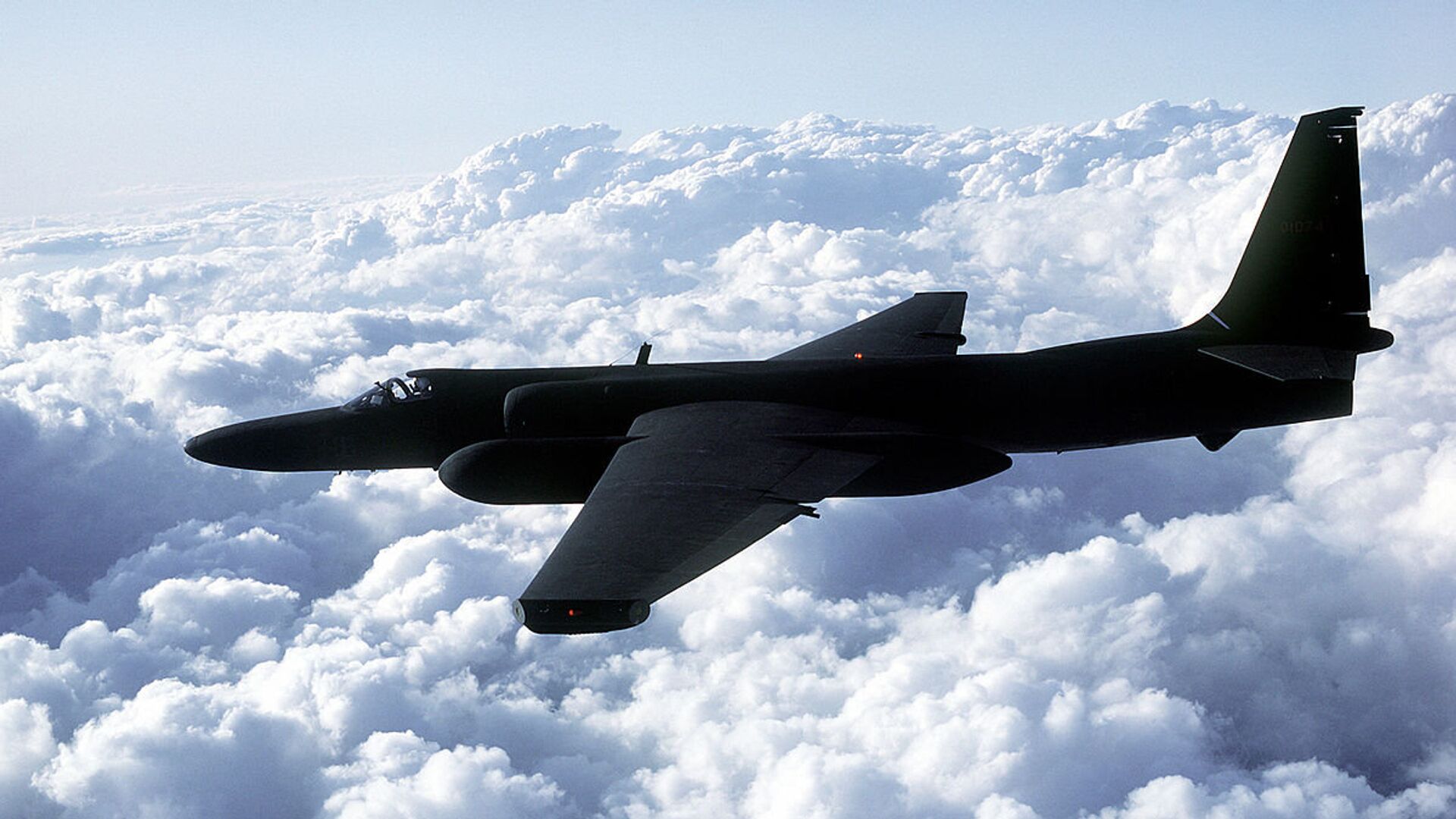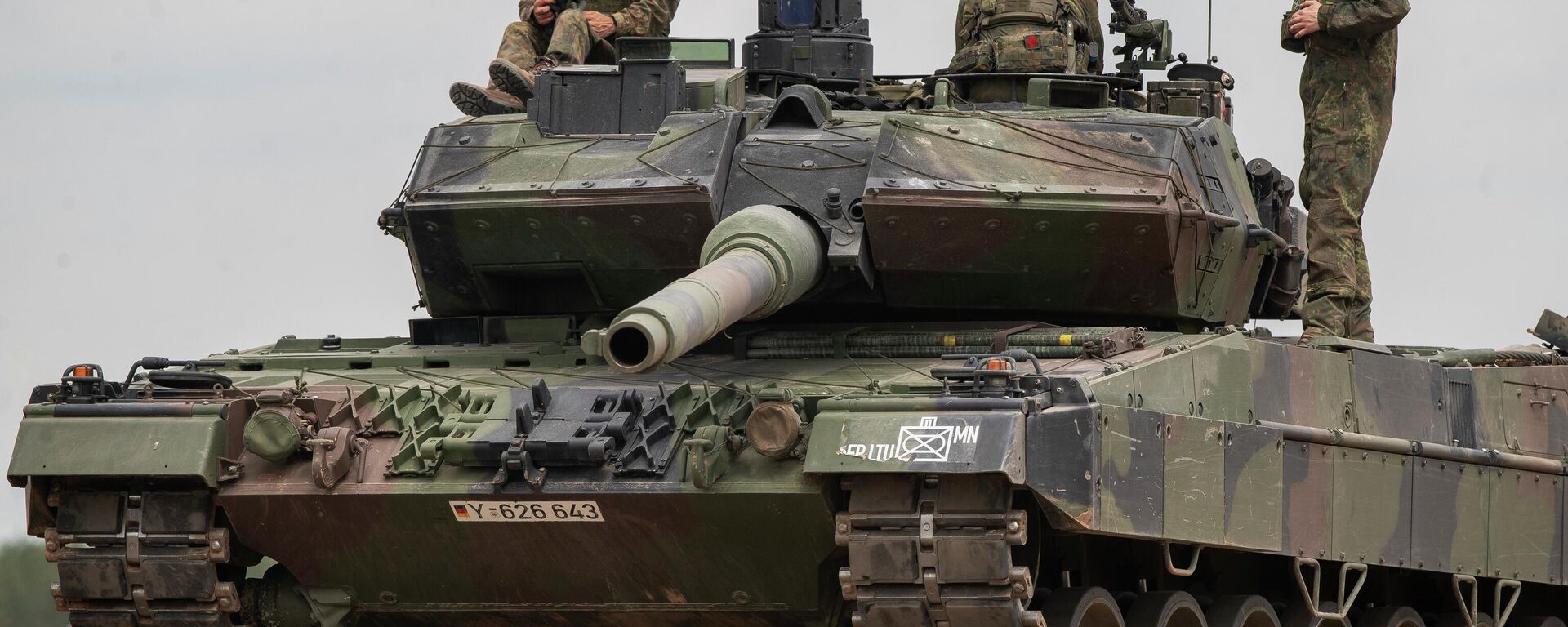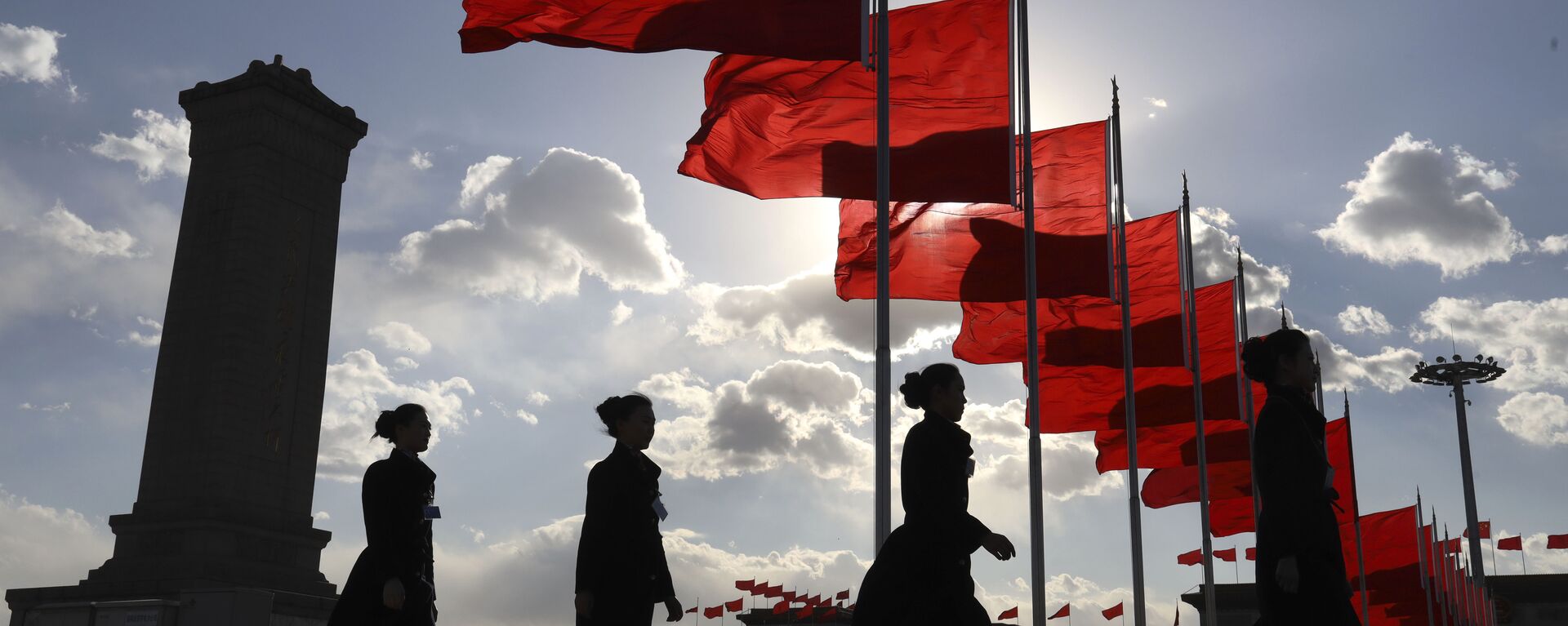US Rejection of ‘Civilized Realism’ Makes World Scarier Today Than During Cuban Missile Crisis

CC0 / Ken Hackman, AAVS/DOOJ /
Subscribe
Sunday marks the 61st anniversary of the end of the Cuban Missile Crisis – the October 1962 diplomatic and military emergency which brought the USA and the USSR to the brink of nuclear annihilation. Sputnik reached out to scholars to learn why the present crisis in Russian-US relations is even more dangerous than the one six decades ago.
Sixty-one years ago this month, between mid-late October of 1962, the world bated its breath as the nuclear superpowers approached the precipice of a third and likely final world war in humanity's history.
Concerned by the deployment of US nuclear missiles in Turkiye and the global strategic imbalance caused by the USSR’s lack of long-range missiles capable of reaching US soil, Soviet leader Nikita Khrushchev made the audacious and highly risky decision to try to secretly deploy more than 160 nuclear weapons in Cuba – then a newfound Soviet ally. US intelligence found out about the attempted deployment, triggering the two-week standoff.
War was averted thanks to a masterclass of personalized back-and-forth diplomacy between Khrushchev and US President John F. Kennedy, with the leaders sending each other a series of letters, and ultimately finding mutual readiness to compromise. In exchange for an ironclad commitment by the US not to invade Cuba, and to quietly remove its Jupiter missiles from Turkiye, the USSR agreed to withdraw and never again station nuclear weapons on the Caribbean Island.
Sixty years later, the roles reversed, with NATO expanding up to Russia’s borders, and the US building nuclear-capable anti-missile launch sites in Eastern Europe. Amid intelligence reports of Ukrainian plans to attack the Donbass, and NATO statements that it would not entertain Russian concerns about Ukrainian membership in the Western alliance, Moscow made a final diplomatic overture to prevent escalation – sending a pair of comprehensive draft treaty proposals to Washington and Brussels in December 2021 designed to ease tensions.
NATO and the US rejected the draft treaties, ultimately sparking a proxy war with Russia in Ukraine, and slowly escalating tensions by delivering evermore advanced weapons to the country, including long-range artillery, depleted uranium tank shells, cluster bombs and cruise missiles which can hit targets deep inside the Russian hinterland.
The Ukrainian crisis has served to dramatically escalate strategic tensions between the nuclear superpowers, with the US conducting a large scale explosion at a nuclear testing ground in Nevada as Russia moved to pull out of the Comprehensive Nuclear Test Ban Treaty last week.
Comparing Crises
The perilous state of relations between Moscow and Washington today is even more dangerous than it was during the Cuban Missile Crisis, says Moscow State University professor, author and veteran Russian US politics expert Boris Mezhuev – in part because Washington refuses to recognize Russia’s basic rights as a great power, and in part due to the fundamentalist ideology of the current crop of American elites.
In 1962, Mezhuev told Sputnik, there was a “clear ideological positioning of the two sides,” with each “proceeding from the fact that the other had a certain right to an ideological position."
“The second factor, which flows from the first, is that there was tacit recognition of the idea of spheres of influence. That is, it was clear that something was within the Soviet sphere of influence, and something within the American sphere of influence, and the parties respected these borders,” the observer said.
In that sense, the USSR’s deployment of nuclear missiles in Cuba was rightfully perceived by the US as a violation of this tacit agreement – just as the US deployment of nukes in Turkiye was seen as a threat to Moscow.
“From Yalta in 1945 onward, in general, the two sides recognized one another’s spheres of influence, a fact which was later condemned by the so-called democratic fundamentalists as a severe deviation from the ideals of democracy. The idea of limited sovereignty existed. And despite its absolutely anti-democratic nature, which of course was clearly obvious, it nevertheless allowed the sides to generally understand what could and couldn’t be done. In this sense, Khrushchev’s actions were perceived by the Soviet elite as too voluntaristic and risky, which in fact ultimately culminated in his ouster,” Mezhuev explained.
In October 1962, the two sides could reach an agreement because they shared the ideals of political realism, the observer noted.
Blueprint for Avoiding War
The Cold War-era recognition of one another’s interests and spheres of influence wasn’t limited to the Cuban Missile Crisis either, Mezhuev emphasized, pointing out that whether in France, Italy, Greece or Eastern Europe, both sides set out and respected the other’s boundaries.
It was recognized by the US that it would have to “stay out, for the sake of example, of Czechoslovakia. The USSR did not try to take advantage of the youth protest movements in France in 1968. The Soviet Union did not use the communist uprising in Greece to establish communism there, which could have been done. Moscow distanced itself from some kind of communist expansion into France and Italy, where communists held majority support. But in return it demanded recognition of its sphere of influence in Eastern Europe,” the academic said.
This admittedly turned out to be somewhat of a geopolitical “trap” for the USSR in the end, Mezhuev added, with Moscow ending up abandoning support for forces in countries where communist ideas were popular and insisting on communist transformation in Eastern European countries where it was “completely unpopular.”
Nevertheless, the geopolitical realism afforded by the concept of spheres of influence “played an important role in preventing serious conflicts,” according to Mezhuev.
Today, the academic lamented, “there is no ideology of civilized realism,” no recognition by Washington that “another force also has the right to exist.” Rather than the realities of the Cold War, appeals have been made in the West to the Second World War, to the idea that “the enemy must be defeated” and that a new “Munich” is “impossible.”
Alexander Hill, a professor of military history at the University of Calgary in Alberta, Canada, agreed with this assessment.
"One of the most significant differences between the situation in 1962 and today is that back in 1962 both Khrushchev and Kennedy were willing - in order to remove the increased threat of nuclear war - to tacitly accept the notion that both the United States and the Soviet Union had spheres of influence," Hill told Sputnik.
"Consequently, when the Soviet Union pulled its nuclear weapons out of Cuba - that the US considered its 'backyard' - the United States was willing to do the same with weapons in Turkiye," Hill said. "For the remainder of the Cold War the Soviet Union at least refrained from providing the sort of support to socialist regimes in Latin America and the Caribbean, such as Nicaragua, that it provided to such governments elsewhere in the world."
"There were unfortunately signs under President Reagan that any tacit understanding on the US side had been lost by the 1980s after Soviet intervention in Afghanistan, as the US pumped money and weapons into the war there. After the collapse of the Soviet Union the United States political establishment believed that the Soviet Union had been defeated, and that Russia would acquiesce in some sort of increasing US hegemony - including US encroachment into territory that had previous been Soviet and before that a core part of the Russian Empire," Hill added.
Today, Mezhuev said, a transition back to realism "to realistic thinking, no longer associated with blocs, but with civilizations,” is an absolute must.
But that may be easier said than done, Dr. Hill believes. "A resurgent Russia under Vladimir Putin has challenged that idea of US hegemony - something that 'Cold War warrior' US politicians like Joe Biden are unwilling to give up on. The result is that even though Crimea, Donetsk and Lugansk are quite clearly very much Russian in an ethnic and cultural sense, the US is willing to fight for the idea that such territory should be in a Western orbit," he said.
Current Crisis Can Be Resolved
Reestablishing a world order where the risk of great power conflict is reduced to a minimum has one important criteria which must be met, according to Mezhuev.
“One needs to pick up the phone and discuss all possible conditions. The West needs someone like a Dwight Eisenhower or a Richard Nixon – someone capable at some point of breaking away from dominant [policy] and choosing geopolitics over electoral considerations; a person who understands that the situation requires another way out – namely the negotiations process.”
Ultimately, for Russia and the US to find common ground, “it’s necessary to forget about the differences in political systems, differences in ideology and approaches to life – to keep these things to themselves and recognize that the other side has the right to their sphere of influence." But "the current situation, of course, must be overcome,” Mezhuev said.
Dr. Hill agrees that this needs to happen, but is less confident about the prospects of such a development. "For there to be some sort of détente today the United States would have to acknowledge that Russia has legitimate concerns about and responsibilities for the Russian-speaking and culturally Russian world - and indeed legitimate security concerns regarding the expansion of NATO into the post-Soviet space. Sadly, in the current political climate in the West that seems very unlikely," the academic summed up.





